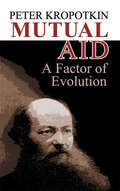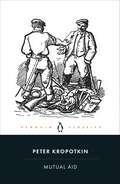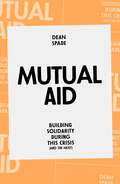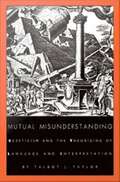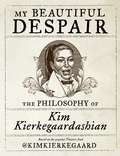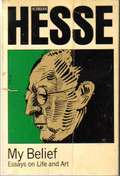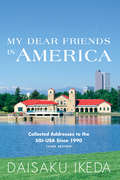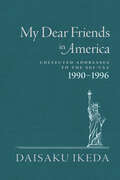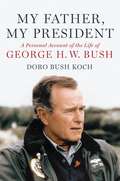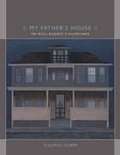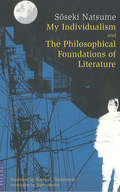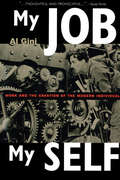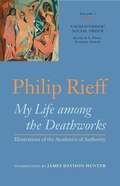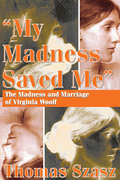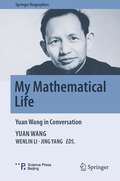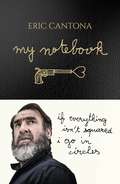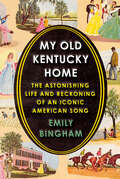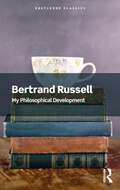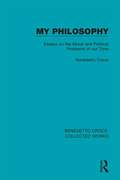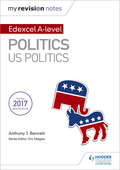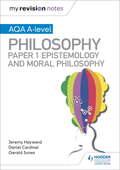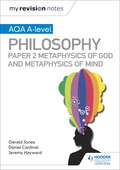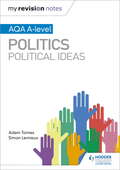- Table View
- List View
Mutual Aid: A Factor of Evolution
by Peter KropotkinIn this cornerstone of modern liberal social theory, Peter Kropotkin states that the most effective human and animal communities are essentially cooperative, rather than competitive. Kropotkin based this classic on his observations of natural phenomena and history, forming a work of stunning and well-reasoned scholarship. Essential to the understanding of human evolution as well as social organization, it offers a powerful counterpoint to the tenets of Social Darwinism. It also cites persuasive evidence of human nature's innate compatibility with anarchist society."Kropotkin's basic argument is correct," noted evolutionary biologist Stephen Jay Gould. "Struggle does occur in many modes, and some lead to cooperation among members of a species as the best pathway to advantage for individuals." Anthropologist Ashley Montagu declared that "Mutual Aid will never be any more out of date than will the Declaration of Independence. New facts may increasingly become available, but we can already see that they will serve largely to support Kropotkin's conclusion that 'in the ethical progress of man, mutual support—not mutual struggle—has had the leading part.'" Physician and author Alex Comfort asserted that "Kropotkin profoundly influenced human biology by his theory of Mutual Aid. . . . He was one of the first systematic students of animal communities, and may be regarded as the founder of modern social ecology."
Mutual Aid: A Factor of Evolution
by Peter KropotkinA pioneering treatise on cooperation and reciprocity, from the great anarchist thinker'Don't compete! - competition is always injurious to the species, and you have plenty of resources to avoid it!'In his pioneering 1902 treatise on human cooperation, the anarchist thinker and natural scientist Peter Kropotkin argued that it is our innate instinct for mutual aid - rather than mutual struggle - which enables societies to survive and flourish. From the earliest days of evolution through to medieval guilds, indigenous nomads and modern voluntary organisations, Kropotkin's vision of small-scale, ecologically sustainable, collective communities challenged the orthodoxies of his age, whether individualism or Marxism. Mutual Aid offers instead a radical, and prescient, rewriting of the whole of human history.With an introduction by David Priestland
Mutual Aid: Building Solidarity During This Crisis (and the Next)
by Dean SpadeMutual aid is the radical act of caring for each other while working to change the world. Around the globe, people are faced with a spiralling succession of crises, from the Covid-19 pandemic and climate change-induced fires, floods, and storms to the ongoing horrors of mass incarceration, racist policing, brutal immigration enforcement, endemic gender violence, and severe wealth inequality. As governments fail to respond to—or actively engineer—each crisis, ordinary people are finding bold and innovative ways to share resources and support the vulnerable. Survival work, when done alongside social movement demands for transformative change, is called mutual aid.This book is about mutual aid: why it is so important, what it looks like, and how to do it. It provides a grassroots theory of mutual aid, describes how mutual aid is a crucial part of powerful movements for social justice, and offers concrete tools for organizing, such as how to work in groups, how to foster a collective decision-making process, how to prevent and address conflict, and how to deal with burnout. Writing for those new to activism as well as those who have been in social movements for a long time, Dean Spade draws on years of organizing to offer a radical vision of community mobilization, social transformation, compassionate activism, and solidarity.
Mutual Misunderstanding: Scepticism and the Theorizing of Language and Interpretation
by Talbot J. TaylorDo others understand what we say or write? Do we understand them? Theorists of language and interpretation claim to be more concerned with questions about "what" we understand and "how" we understand, rather than with the logically prior question "whether" we understand each other. An affirmative answer to the latter question is apparently taken for granted. However, in Mutual Misunderstanding, Talbot J. Taylor shows that the sceptical doubts about communicational understanding do in fact have a profoundly important, if as yet unacknowledged, function in the construction of theories of language and interpretation. Mutual Misundertanding thus presents a strikingly original analysis of the rhetorical patterns underlying Western linguistic thought, as exemplified in the works of John Locke, Jacques Derrida, Gottlob Frege, Jonathan Culler, Noam Chomsky, Ferdinand de Saussure, H. Paul Grice, Michael Dummet, Stanley Fish, Alfred Schutz, Barbara Herrnstein Smith, Harold Garfinkel, and others. This analysis reveals how, by the combined effect of appeals to "commonsense" and anxieties about implications of relativism, scepticism has a determining role in the discursive development of a number of the intellectual disciplines making up the "human sciences" today, including critical theory, literary hermeneutics, philosophy of language and logic, communication theory, discourse and conversation analysis, pragmatics, stylistics, and linguistics. Consequently, this provocative study will be of value to readers from a wide variety of disciplinary backgrounds.
My Beautiful Despair: The Philosophy of Kim Kierkegaardashian
by Kim Kierkegaardashian&“Reflective maxims on life, death, sin, and emptiness, salted with luxury accessories of the Kardashian lifestyle...@KimKierkegaard is dross turned gold, redemption through absurdity in a hundred and forty characters.&” –The New Yorker In &“the ultimate meeting of the sublime with the ridiculous&” (London Evening Standard) My Beautiful Despair blends the existential philosophy of Søren Kierkegaard with the superficial musings of Kim Kardashian West, based on the popular Twitter feed @KimKierkegaard. Kierkegaardashian shares thoughts on fashion, beauty, brunch, and the relentless waves of existential dread that wash over us day after day.A sample of the revelations include: – I have majorly fallen off my workout-eating plan! AND it's summer. But to despair over sin is to sink deeper into it. – Obsessed with protecting your skin, lips, hair & face from the sun? Close the cover of the coffin tight, really tight, and be at peace. – I like my men like I like my coffee: a momentary comfort in the midst of all my suffering. – What is the operation by which a self relates itself to its own self, transparently? Selfie. – What if everything in life were a misunderstanding, what if laughter were really tears? Scared LOL!! – I&’ve been going to bed a little bit earlier each night, to get a taste of death. In an age where the line between news and entertainment is blurrier than ever before, and the difference between a celebrity and the leader of the free world is nil, Kierkegaardashian&’s insights perfectly reflect our absurd, hilarious, and deeply disturbing new era. @KimKierkegaard has been admired, praised, and adored in The New Yorker, The Washington Post, The New York Times, Financial Times, The Economist, New York, Buzzfeed, and more, and has amassed nearly a quarter of a million Twitter followers, including J.K. Rowling and Anna Kendrick. Now in a humorous, illustrated gift book, perfectly suited for our existential times, Kierkegaardashian&’s philosophical insights are juxtaposed for the first time with Dash Shaw&’s brilliant black-and-white illustrations.
My Belief: Essays on Life and Art
by Hermann Hesse Ralph Manheim Denver Lindley Theodore ZiolkowskiMy Belief: Essays on Life and Art is a collection of essays by Hermann Hesse. The essays, written between 1904 and 1961, were originally published in German, either individually or in various collections between 1951 and 1973. This collection in English was first published in 1976, edited by Theodore Ziolkowski.
My Body, My Earth: The Practice Of Somatic Archaeology
by Ruby GibsonWithin each body is an archaeological site that holds the details and wisdom of our extraordinary life story, composed of generational, spiritual, and personal experiences. Historical amnesia locks these stories in the body, manifesting as pain, disease, addictions, emotional patterns, and repetitive circumstances. Somatically excavating your personal legend unearths memories of the past that can be reconciled and healed in order to create a new myth-for your body and for your Earth. "My Body, My Earth provides a detailed and eloquent rationale and description for how this remarkable technique works, both as a therapeutic model and a self-help manual. It is a major contribution to the burgeoning literature in the field of somatic psychology."-Robert Scaer, M.D., author, The Body Bears the Burden: Trauma, Dissociation and Disease, and The Trauma Spectrum: Hidden Wounds and Human Resiliency "A remarkable incursion into one of the deepest of all mysteries: the hidden memories that are locked into the fibers of our bodies. This book is an impressive and extremely helpful guide to reuniting the conscious and unconscious aspects of the mind."-Richard Smoley, author of Conscious Love and Inner Christianity
My Dear Friends in America: Collected Addresses to the SGI-USA since 1990, 3rd Edition
by Daisaku IkedaDaisaku Ikeda, one of the most beloved Buddhist teachers in the world today, offers powerful and inspiring teachings aimed at an American audience. His warm, deeply insightful and compassionate style makes his wisdom accessible to readers from all backgrounds. This collection of addresses from Mr. Ikeda’s visits to the United States in the 1990s cover a wide range of topics: from the true meaning of happiness and success, to how to find your true purpose in life and how an inner transformation of human beings can bring peace to the world. This is truly a textbook of happiness for America. Also included in this collection are Mr. Ikeda’s university lectures, at such institutes as Harvard and Colombia. These lectures range widely across topics as diverse as art, religion, culture and time, and draw creatively on the sages of ancient India, China and Japan as well as on visionary thinkers from every nation, including Tolstoy, Victor Hugo and Gandhi.
My Dear Friends in America: Collected US Addresses 1990–96, Fourth Edition
by Daisaku IkedaIn the 1990s, SGI President Ikeda visited the United States six times. Each time, he addressed the unique needs of American members and gave us clear and compelling guidance on how to win over obstacles, attain personal happiness and work toward the spread of Nichiren Buddhism in our country. These speeches form a textbook of faith that will benefit everyone who practice Nichiren Buddhism in America today and into the future. In addition to slight revisions of the translation, this fourth edition includes the SGI president's 2000 poem to the United States, "Soar Into the Vast Skies of Freedom! Into the New Century!"
My Father, My President: A Personal Account of the Life of George H. W. Bush
by Doro Bush KochWhen George H. W. Bush asked Doro to write this memoir, she contacted hundreds of his friends and associates; conducted scores of interviews with dignitaries including Bill Clinton, Mikhail Gorbachev, and General Colin Powell; tapped the memories of family members, including her mother, her four brothers, and of course, her father himself; and collected information from the former president's never-before-released files. "Now for the first time, a complete portrait of George H. W. Bush emerges. Doro reveals her father as a young man courting his future wife, Barbara, and how the death of their first daughter brought them closer. Doro tells how they raised five children through much of her father's long and storied career in public service, and offers details about this tenures as head of the Republication National Committee during Watergate, ambassador to the U.N., America's liaison to China, and vice president for eight years under Ronald Reagan." "Doro also provides an insider's look at how the 41st president dealt with crises and challenges, all while keeping his humor and personality intact, and how he still does so while aiding victims of the 2004 tsunami and Hurricane Katrina. She shows how he felt when two of his sons entered politics - and when his eldest made it to the top - and sheds new light on his friendship with former rival Bill Clinton."--BOOK JACKET.
My Father’s House: On Will Barnet's Paintings
by Thomas DummIn My Father's House, the political philosopher Thomas Dumm explores a series of stark and melancholy paintings by the American artist Will Barnet. Responding to the physical and mental decline of his sister Eva, who lived alone in the family home in Beverly, Massachusetts, Barnet began work in 1990 on what became a series of nine paintings depicting Eva and other family members, as they once were and as they figured in the artist's memory. Rendered in Barnet's signature quiet, abstract style, the paintings, each featured in full color, present the ordinary and extraordinary aspects of a twentieth-century American family. Dumm first became acquainted with Barnet and his paintings in 2008. Given his scholarly focus on the lives of ordinary people, he was immediately attracted to the artist's work. When they met, Dumm and Barnet began a friendship and dialogue that lasted until the painter's death in 2012, at the age of 101. This book reflects the many discussions the two had concerning the series of paintings, Barnet's family, his early life in Beverly, and his eighty-year career as a prominent New York artist. Reading the almost gothic paintings in conversation with the writers and thinkers key to both his and Barnet's thinking--Emerson, Spinoza, Dickinson, Benjamin, Cavell, Nietzsche, Melville--Dumm's haunting meditations evoke broader reflections on family, mortality, the uncanny, and the loss that comes with remembrance.
My Individualism and the Philosophical Foundations of Literature
by Natsume Soseki Sammy I. Tsunematsu Inger BrodeyIn these rare personal essays, Soseki defines the role of art in light of the isolation of the modern world. Each essay includes personal anecdotes that act as allegories about the fate of Japan.In her introduction, Soseki expert Dr. Inger Sigrun Brodey masterfully unravels the complexities of the two essays.
My Job, My Self: Work and the Creation of the Modern Individual
by Al GiniIn My Job My Self, Gini plumbs a wide range of statistics, interviews with workers, surveys from employers and employees, and his own experiences and memories, to explore why we work, how our work affects us, and what we will become as a nation of workers. My Job, My Self speaks to every employed person who has yet to understand the costs and challenges of a lifetime of labor.
My Life Among The Deathworks: Illustrations of the Aesthetics of Authority
by Philip Rieff James Davison Hunter Kenneth S. PiverWith My Life among the Deathworks: Illustrations of the Aesthetics of Authority, the renowned cultural theorist and Freud scholar Philip Rieff inaugurates a trilogy that signals the summation of his scholarly lifework. With this series, Sacred Order/Social Order, to be published in consecutive volumes, Rieff both continues and supersedes the lines of thought that characterize the earlier, influential works upon which his reputation was forged. Readers familiar with Rieff's distinctive oeuvre will recognize central themes and find final recitations on the cultural impact of Freud and his creation "psychological man" or "the therapeutic," which Rieff here renames the "new man." Whether conversant with Rieff's work or new to its unique interpretive power, readers of Sacred Order/Social Order will discover a series of provocative insights, illuminated by Rieff's wide-ranging expositions, theoretical advances, and stylistic innovations.
My Madness Saved Me: The Madness and Marriage of Virginia Woolf
by Thomas Szasz"The vast literature on Virginia Woolf's life, work, and marriage falls into two groups. A large majority is certain that she was mentally ill, and a small minority is equally certain that she was not mentally ill but was misdiagnosed by psychiatrists. In this daring exploration of Woolf's life and work, Thomas Szasz--famed for his radical critique of psychiatric concepts, coercions, and excuses--examines the evidence and rejects both views. Instead, he looks at how Virginia Woolf, as well as her husband Leonard, used the concept of madness and the profession of psychiatry to manage and manipulate their own and each other's lives.Do we explain achievement when we attribute it to the fictitious entity we call ""genius""? Do we explain failure when we attribute it to the fictitious entity we call ""madness""? Or do we deceive ourselves the same way that the person deceives himself when he attributes the easy ignition of hydrogen to its being ""flammable""? Szasz interprets Virginia Woolf's life and work as expressions of her character, and her character as the ""product"" of her free will. He offers this view as a corrective against the prevailing, ostensibly scientific view that attributes both her ""madness"" and her ""genius"" to biological-genetic causes. We tend to attribute exceptional achievement to genius, and exceptional failure to madness. Both, says Szasz, are fictitious entities."
My Mathematical Life: Yuan Wang in Conversation (Springer Biographies)
by Yuan WangThis book is an autobiographical interview with Chinese Academician Yuan Wang on his experience in mathematical research. The book looks back on Wang's collaboration with his teacher Hua Loo-Keng and younger scholars, offering insights into fruitful cooperation in mathematical research.In this book, Yuan Wang’s path of studying Goldbach conjecture is revealed in detail from motivation to method. Then his work on algebraic number theory is traced back in a separate chapter. The book ends with two chapters which introduce Wang’s interest in history of mathematics and his hobbies outside of mathematical research. Wang shows how a mathematician can in the same time be a historical and popular science writer and, in particular, a well-received calligrapher. The book is intended for undergraduate and graduate students studying number theory. Researchers who are willing to learn from the experience of an established mathematician, as well as math amateurs and general audience who are interested in Yuan Wang's life story might also find this book appealing.
My Notebook
by Eric CantonaOn the field or off, Eric 'The King' Cantona has always been known as an artist. Passionate about painting and photography from a very young age, he more recently took to writing, drawing and sketching out his thoughts in small Moleskine diaries. This book is the reproduction of his notebooks.Through these never-before-seen drawings, in his faux-naive style, Eric Cantona questions every aspects of the world around us - whether it's love, death, absurdity or society. With his trademark wit and wordplay, Cantona interrogates our paradoxes and contradictions, and the absurdity of the world as only he knows how.These notebooks are as funny as they are poetic and philosophical. But foremost, they're an ode to living, loving, sharing and contemplation.
My Old Kentucky Home: The Astonishing Life and Reckoning of an Iconic American Song
by Emily BinghamThe long journey of an American song, passed down from generation to generation, bridging a nation&’s fraught disconnect between history and warped illusion, revealing the country's ever evolving self.MY OLD KENTUCKY HOME, from its enormous success in the early 1850s, written by a white man, considered the father of American music, about a Black man being sold downriver, performed for decades by white men in blackface, and the song, an anthem of longing and pain, turned upside down and, over time, becoming a celebration of happy plantation life.It is the state song of Kentucky, a song that has inhabited hearts and memories, and in perpetual reprise, stands outside time; sung each May, before every Kentucky Derby, since 1930. Written by Stephen Foster nine years before the Civil War, &“My Old Kentucky Home&” made its way through the wartime years to its decades-long run as a national minstrel sensation for which it was written; from its reference in the pages of Margaret Mitchell&’s Gone with the Wind to being sung on The Simpsons and Mad Men. Originally called &“Poor Uncle Tom, Good-Night!&” and inspired by America&’s most famous abolitionist novel, it was a lament by an enslaved man, sold by his "master," who must say goodbye to his beloved family and birthplace, with hints of the brutality to come: &“The head must bow and the back will have to bend / Wherever the darky may go / A few more days, and the trouble all will end / In the field where the sugar-canes grow . . .&” In My Old Kentucky Home, Emily Bingham explores the long, strange journey of what has come to be seen by some as an American anthem, an integral part of our folklore, culture, customs, foundation, a living symbol of a &“happy past.&” But &“My Old Kentucky Home&” was never just a song. It was always a song about slavery with the real Kentucky home inhabited by the enslaved and shot through with violence, despair, and degradation. Bingham explores the song&’s history and permutations from its decades of performances across the continent, entering into the bloodstream of American life, through its twenty-first-century reassessment. It is a song that has been repeated and taught for almost two hundred years, a resonant changing emblem of America's original sin whose blood-drenched shadow hovers and haunts us still.
My Philosophical Development (Routledge Classics)
by Bertrand RussellMy Philosophical Development is Russell's intellectual autobiography and provides a fascinating insight into the extraordinary energy and philosophical ambition that saw him write over 40 books. As well as offering some fascinating glimpses into the changing nature of his philosophical beliefs, Russell also reflects on the fundamental themes that governed his thinking in later life. Beginning with an account of his decisive turn against the philosophical idealism that was prevalent in Cambridge at the turn of the century, Russell takes us through his engagement with the foundations of mathematics and the writing, with A.N. Whitehead, of Principia Mathematica. Russell also provides important insights into his theory of knowledge and the mind and conscious experience, before finishing with reflections on his work on language, universals and particulars and his theory of truth. An ideal philosophical companion to Russell's own Autobiography, My Philosophical Development is testament to one of the greatest minds of the 20th century. This Routledge Classics edition includes a new Foreword by Nicholas Griffin.
My Philosophy: Essays on the Moral and Political Problems of our Time (Collected Works)
by Benedetto CroceOriginally published in 1949, Croce’s essays on political, philosophic and aesthetic subjects, selected from both his earlier and later writings possess a remarkable underlying unity. The political essays which form a major part of this volume display a criticism, either direct or implied of the mass creeds and movements that subordinate the individual to history. They combine a passionate belief in liberty with critical and historical judgment.
My Revision Notes: Edexcel AS/A-level Politics: US Politics
by Anthony J BennettTarget success in politics with this proven formula for effective, structured revision; key content coverage is combined with exam-style tasks and practical tips to create a revision guide that students can rely on to review, strengthen and test their knowledge.With My Revision Notes, every student can:- Plan and manage a successful revision programme using the topic-by-topic planner- Consolidate subject knowledge by working through clear and focused content coverage- Test understanding and identify areas for improvement with regular 'Now Test Yourself' tasks and answers- Improve exam technique through practice questions, expert tips and examples of typical mistakes to avoid- Get exam ready with extra quick quizzes and answers to the practice questions available online
My Revision Notes: AQA A-level Philosophy Paper 1 Epistemology and Moral Philosophy (My Revision Notes)
by Dan Cardinal Jeremy Hayward Gerald JonesTarget success in AQA A-level Philosophy with this proven formula for effective, structured revision; key content coverage is combined with exam-style tasks and practical tips to create a revision guide that you can rely on to review, strengthen and test students' knowledge.With My Revision Notes, every student can:- Plan and manage a successful revision programme using the topic-by-topic planner- Consolidate subject knowledge by working through clear and focused content coverage- Test understanding and identify areas for improvement with regular 'Now Test Yourself' tasks and answers- Improve exam technique through practice questions, expert tips and examples of typical mistakes to avoid
My Revision Notes: AQA A-level Philosophy Paper 2 Metaphysics of God and Metaphysics of mind (My Revision Notes)
by Dan Cardinal Jeremy Hayward Gerald JonesTarget success in AQA A-level Philosophy with this proven formula for effective, structured revision; key content coverage is combined with exam-style tasks and practical tips to create a revision guide that you can rely on to review, strengthen and test students' knowledge.With My Revision Notes, every student can:- Plan and manage a successful revision programme using the topic-by-topic planner- Consolidate subject knowledge by working through clear and focused content coverage- Test understanding and identify areas for improvement with regular 'Now Test Yourself' tasks and answers- Improve exam technique through practice questions, expert tips and examples of typical mistakes to avoid
My Revision Notes: AQA A-level Politics: Political Ideas
by Simon Lemieux Adam TomesWWith My Revision Notes, every student can- Plan and manage a successful revision programme using the topic-by-topic planner- Consolidate subject knowledge by working through clear and focused content coverage- Test understanding and identify areas for improvement with regular 'Now Test Yourself' tasks and answers- Improve exam technique through practice questions, expert tips and examples of typical mistakesto avoid
My Revision Notes: AQA A-level Politics: Political Ideas
by Simon Lemieux Adam TomesWWith My Revision Notes, every student can- Plan and manage a successful revision programme using the topic-by-topic planner- Consolidate subject knowledge by working through clear and focused content coverage- Test understanding and identify areas for improvement with regular 'Now Test Yourself' tasks and answers- Improve exam technique through practice questions, expert tips and examples of typical mistakesto avoid
